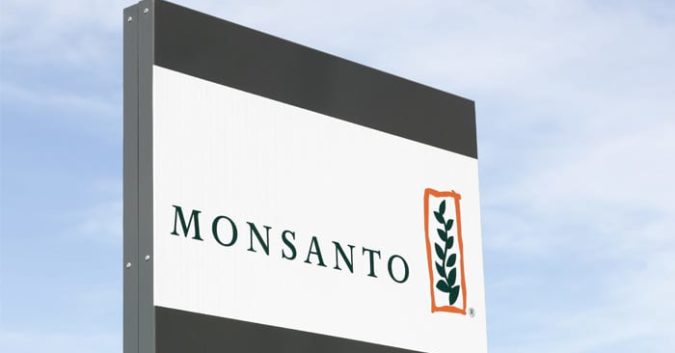A California jury has awarded $289 Million to a former San Francisco area school groundskeeper who claimed that heavy use of Monsanto’s Roundup weed killer aided the development of his terminal cancer. The weed killer’s key ingredient is glyphosate, a chemical compound that has been noted by the World Health Organization’s (WHO) International Agency for Research on Cancer (IARC) as “probably carcinogenic to humans.”
The 46-year-old plaintiff, who is suffering from non-Hodgkin’s lymphoma reportedly used Monsanto’s herbicide 20 to 30 times a year, a span during which he reported 2 accidents that resulted in his entire body being soaked in the product. He sprayed the herbicide from a 50-gallon tank attached to a truck. In some instances, the plaintiff would be spraying the weed killer, and gusts of winds would blow the chemicals right back into his face.
Now, sadly, around 80 percent of the former groundskeeper’s body is covered in cancerous lesions. His cancer is too widespread to be operated on, and before the trial began, doctors were not sure he would live long enough to see the trial through to the end.
Of the $289 Million award, $39 Million was allocated for compensatory damages and $250 Million was assessed in punitive damages, or damages designed to punish a company and prevent similar future wrongdoings.
Is Glyphosate a Cancer-Causing Substance?
Depending on the health organization doing the research, glyphosate, the active ingredient in Roundup, is considered to be either cancer-causing or not. According to IARC, it is likely carcinogenic, whereas the U.S. Environmental Protection Agency (EPA) says glyphosate is safe, so long as consumers use the product in accordance with the label’s instructions. The IARC writes:
“For the herbicide glyphosate, there was limited evidence of carcinogenicity in humans for non-Hodgkin lymphoma. The evidence in humans is from studies of exposures, mostly agricultural, in the USA, Canada, and Sweden published since 2001.”
Roundup lawsuits have put the product itself under deeper scrutiny, not only because of its glyphosate, but because of its other ingredients which could allegedly cause a “synergistic effect” that would amplify the product’s carcinogenic properties.
In the California man’s case against Monsanto, plaintiff attorneys argued that the company had a duty to warn consumers of the potential cancer risks associated with Roundup. According to the jury’s decision, Monsanto failed to warn consumers about such a cancer risk. Jurors agreed that Roundup contributed to the plaintiff’s cancer and that Monsanto should have provided a warning label describing potential health hazards.
Monsanto, Bayer Deny Any Wrongdoing; Thousands of Cases to Go
The monumental verdict against Bayer’s recent acquisition, the agricultural giant Monsanto, will likely impact future trials alleging the makers of Roundup of failure to warn of potential cancer risks. As reported by CNN, the August 11 verdict might also encourage other men and women and/or their families and estates, who blame their cancer on Roundup, to step forward.
Still, with over 4,000 cases awaiting trial in state courts around the U.S. and an estimated 400 additional cases consolidated under federal multidistrict litigation (MDL), Monsanto denies all wrongdoing, claiming there is no link between glyphosate and cancer. Company Vice President Scott Partridge has told reporters that Monsanto will appeal the $289 Million verdict:
“More than 800 scientific studies, the US EPA, the National Institutes of Health, and regulators around the world have concluded that glyphosate is safe for use and does not cause cancer…. We are sympathetic to [the plaintiff] and his family. We will appeal this decision and continue to vigorously defend this product, which as a 40-year history of safe use and continues to be a vital, effective, and safe tool for farmers and others.”
According to some estimates, Monsanto’s appeal will not be cheap; likely costing the company around $25 Million per year.
Meanwhile, the state of California has added glyphosate to its comprehensive list of chemicals known to cause cancer.
